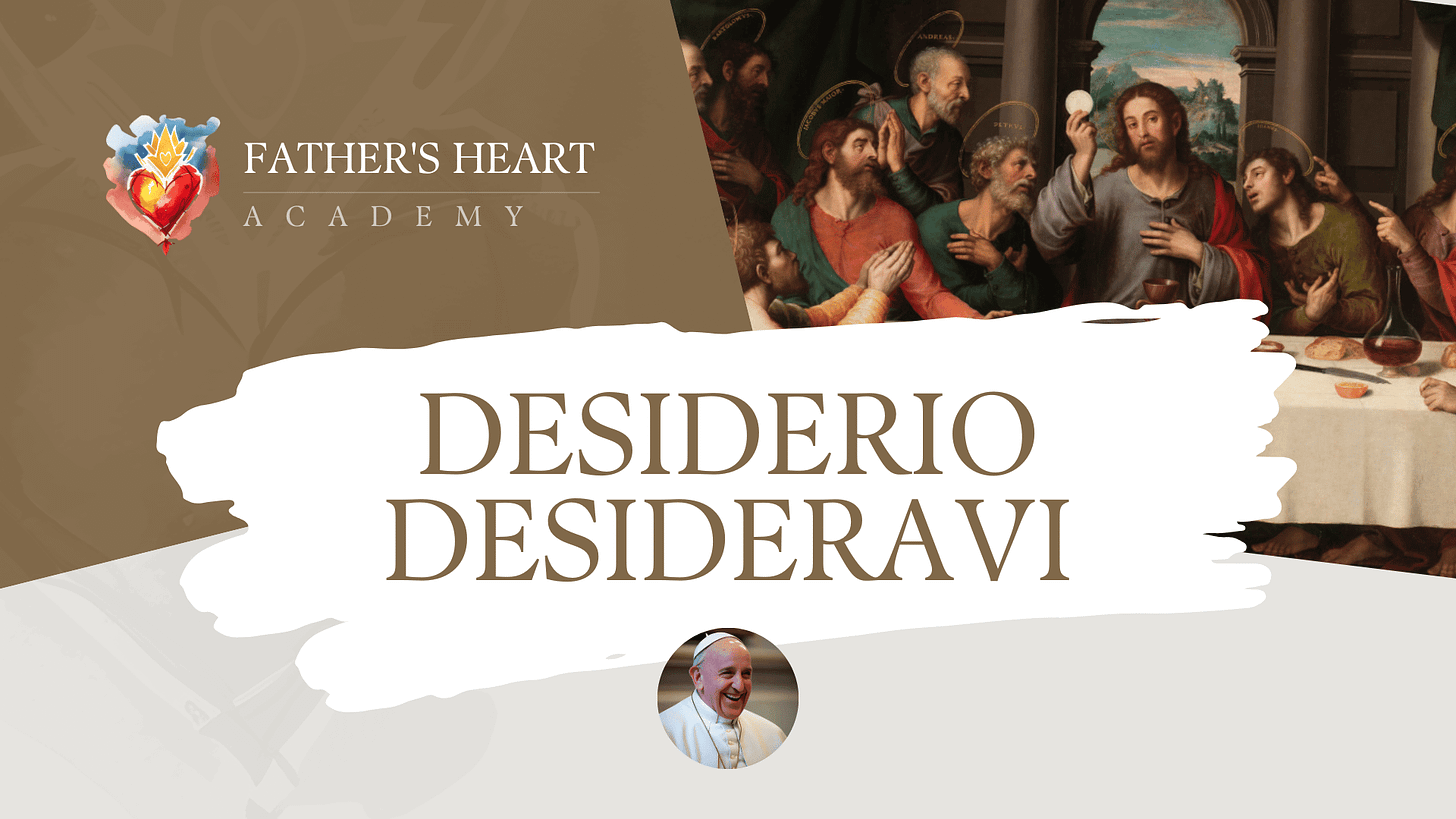Often when I’m talking with someone who is really struggling with Catholicism, either because of abuse they’ve experienced in the Church of because they are wrestling with some of the Church’s teaching, I hear something like, “The only thing keeping me here is the Eucharist.”
Like St. Peter’s words to Jesus in John 6, “To whom else shall we go?”, I think the Eucharist is the anchor for Catholics across the political and theological spectrums that keeps them in the Church when they may have a laundry list of reasons for wanting to leave. If I really believe that the Eucharist really is Jesus, how can I walk away?
This baseline, almost instinctual faith, that Catholics have about the Eucharist is important, essential. But I think it’s only the first step in understanding, and participating in, the mystery of the Eucharist.
Last summer, Pope Francis published an Apostolic Letter about the Eucharist titled Desiderio Desideravi or “I have earnestly desired.”
The title comes from the Gospel of Luke where Jesus says to his Apostles, “I have earnestly desired to eat this Passover with you before I suffer” (Lk 22:15). Pope Francis says, “No one had earned a place at that Supper. All had been invited. Or better said: all had been drawn there by the burning desire that Jesus had to eat that Passover with them” (DD 4).
God’s desire for everyone—and for you personally—is the focus of the pope’s letter. The pope is inviting the Church to reflect, not on the debates about who should or shouldn’t be allowed to receive Communion, but on God’s relentless desire to encounter you through the Eucharistic Liturgy. Francis says:
“Christian faith is either an encounter with Him alive, or it does not exist. The Liturgy guarantees for us the possibility of such an encounter. For us a vague memory of the Last Supper would do no good. We need to be present at that Supper, to be able to hear his voice, to eat his Body and to drink his Blood. We need Him. In the Eucharist and in all the sacraments we are guaranteed the possibility of encountering the Lord Jesus and of having the power of his Paschal Mystery reach us” (DD 10-11).
This Easter, I am inviting you to join me in a workshop where we will explore this.
By prayerfully reading and discussing what Pope Francis teaches about the Mass, you will not only grow in your own love for the Eucharist but you will be more prepared to share that devotion with others. Along with myself and a small community of learners, you will come to see the Mass as the privileged place to encounter Jesus, experience his healing love, and be divinized, that is, as St. Augustine said, “become Christ himself.”
This workshop will help you understand and participate in the Mass as a life-giving encounter with God's relentless desire for you.
This workshop is for anyone who wants to deepen their faith, including catechists, ministers, and clergy who want to enhance their ministry and connect with a supportive community of learners. Whether you're looking to renew your love for Jesus, find a deeper sense of belonging, or grow in your relationship with God, the Desiderio Desideravi workshop is the perfect opportunity for you. In this workshop, you will have:
the freedom to participate as you want
the opportunity to learn and grow within a small group
a non-judgemental space that proclaims and invites, never imposes
the skills to read and understand papal documents
the chance to ask and discuss any questions that you have
This three-part live workshop will be held virtually on April 13, April 20, and April 27 at 7:30-9:00pm (EST).
In addition to studying Desiderio Desideravi in April, there will also be workshops on Pope Francis' life changing teaching about holiness, Gaudete et Exsultate this summer and the Church’s newest social encyclical, Fratelli Tutti, this fall. These workshops are open to everyone, but members of Father's Heart Academy will have access to them for half the price!
Join me!





This is timely. I would register but I have previous commitments on those days at exactly the same time. Thanks you for all the work you do.